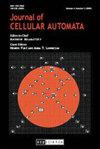元胞自动机的辨识
IF 0.1
4区 计算机科学
Q4 COMPUTER SCIENCE, THEORY & METHODS
引用次数: 109
摘要
虽然元胞自动机作为一类时空系统已经得到了广泛的研究,但很少有研究者研究如何在观察到模式的情况下识别CA规则。本文基于正交最小二乘算法的应用,综述了一种用多项式实现来描述CA规则的解决方案。然后回顾了三种新的邻域检测方法,作为重要的初步分析程序,以降低估计的复杂性。利用仿真实例和实际数据集讨论了可激介质的识别问题,提出了一种识别混合CA的新方法。本文章由计算机程序翻译,如有差异,请以英文原文为准。
The Identification of Cellular Automata
Although cellular automata have been widely studied as a class of the spatio temporal systems, very few investigators have studied how to identify the CA rules given observations of the patterns. A solution using a polynomial realization to describe the CA rule is reviewed in the present study based on the application of an orthogonal least squares algorithm. Three new neighbourhood detection methods are then reviewed as important preliminary analysis procedures to reduce the complexity of the estimation. The identification of excitable media is discussed using simulation examples and real data sets and a new method for the identification of hybrid CA is introduced.
求助全文
通过发布文献求助,成功后即可免费获取论文全文。
去求助
来源期刊

Journal of Cellular Automata
工程技术-计算机:理论方法
CiteScore
0.50
自引率
33.30%
发文量
0
审稿时长
>12 weeks
期刊介绍:
The Journal of Cellular Automata publishes high-quality papers where cellular automata are studied theoretically or used as computational models of mathematical, physical, chemical, biological, social and engineering systems.
A few examples are given in the list below, which is but a small sample of the areas of interest explored by this journal: Structure formation, heat conduction, self-reproduction, language recognition, evolutionary games, image processing, cryptography, random number generation, computational universality, traffic dynamics, neural networks, alternative discrete-physics models, population dynamics etc.
Full length original papers, short communications, reviews and tutorial articles are welcome.
 求助内容:
求助内容: 应助结果提醒方式:
应助结果提醒方式:


